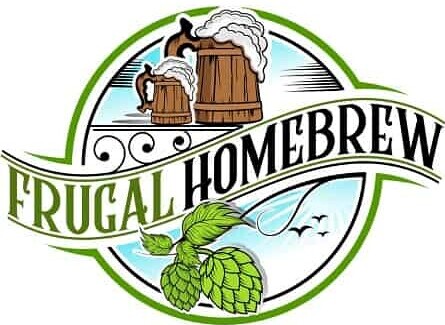I’ve wondered many times if removing hops before fermentation is important. To be honest when I first started brewing I never removed hops. Mainly because I tossed them straight into the pot without a bag or a strainer. In hindsight this may have been a mistake, but it also never hurt anything.
Yes, remove hops prior to fermentation. Hops will contribute to excess trub in your fermenter and is detrimental to creating the clearest beer. Leaving hops in during fermentation will have no negative effects other than taking up excess space. Hop oil extraction could be higher than originally desired.
What methods are there for removing hops from your beer and how bad are hops left in your beer? Although there may not appear to be any negative effects, is there any effect at all?
Hops Left in During Fermentation
There are a few issues with leaving hops in during fermentation but at the end of the day it will not ruin your beer. Here are the possible issues you may have.
- If you are using a pump system the hop trub could get stuck in your system and clog it up.
- Hop trub could decrease the amount of space in your fermenter requiring you to purchase a larger fermenter to compensate.
- When racking your beer or getting it ready for bottling, excess trub will lead to less beer! This is because the trub is hard to separate from the remainder of your finished beer.
- Your beer could become cloudier as a result of hop particles. This is actually OK if brewing a hazy IPA.
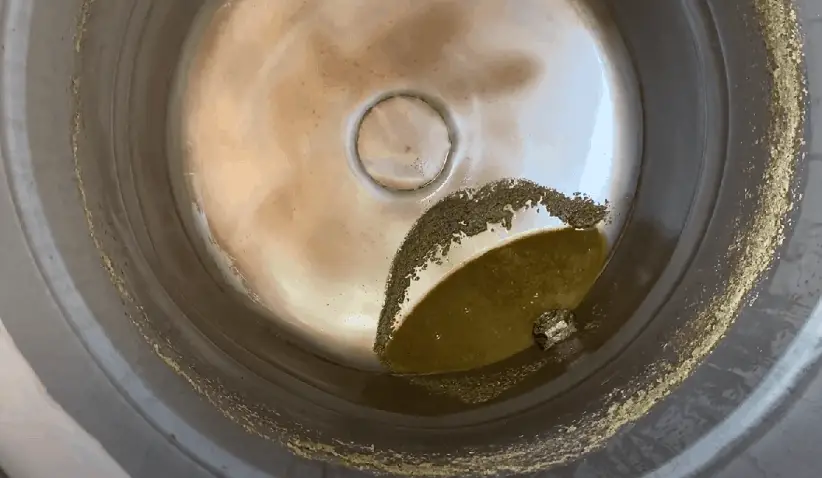
Hop Oil Extraction Issue
There are also a few other considerations when leaving hops in during fermentation and they have to do with flavor. If you are tossing most or all of your hops into the boil at 60 minutes it really doesn’t matter much and you may as well just leave the in during fermentation.
The issue becomes when you are adding hops at the late boil or even whirl-pooling the hops. At this stage you want to perfect your beer by having the hops touch your wort for the perfect amount of time.
When hops are within wort they are constantly extracting oils from the hops. The hops will continue to extract these oils if they are left in the wort during fermentation.
This can leave your homebrew to taste vastly different than it would if you took these hops out before fermentation.
Pro Tip: Hops with lower alpha acids and higher levels of beta acids will extract better flavor and aroma.
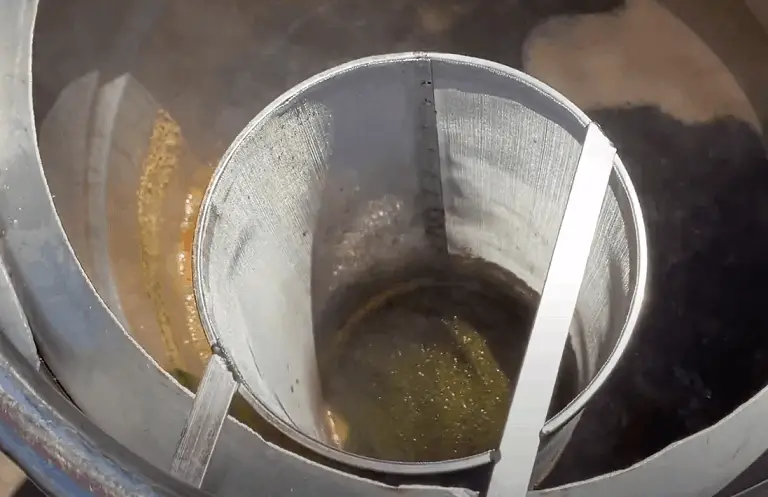
When to Remove Hops from Boil
There is no easy answer of when to remove hops post boil. There are a few reasons for this. Because of the whirlpool method of adding hops it stands to reason that you should remove hops after that is accomplished.
But, if you are not using a whirlpool method then the best time to remove your hops is at flame-out. But of course that is only if you are not tossing your hops directly into the pot.
(see below for ways to avoid tossing in the pot directly)
If you are tossing the hops directly in the pot then of course the only way to remove your hops is by straining the hops when transferring to your fermentation vessel after you have cool the wort.
Re-Using Hops and Interesting Study
Because hops can get expensive it might be a worthwhile endeavor to save the hops that have not had all of their oils extracted. I know it sounds sort of gross but its actually been done before and with great results.
Beer and Brewing magazine reported hops were used a second time at some breweries. This is typically used for dry hoping although it may also work for a whirlpool addition. I don’t think a 15 minute from end of boil addition would be a worthwhile endeavor though.
Its also important to note that you need to have two beers ready to go at the same time, or close to the same time as having wet hops in storage probably isn’t a good idea no matter how anti-microbial they are. Another issue would be oxidation.
This process may be best left to micro and nano breweries since homebrewers will not really realize as much cost savings as is worth the effort.
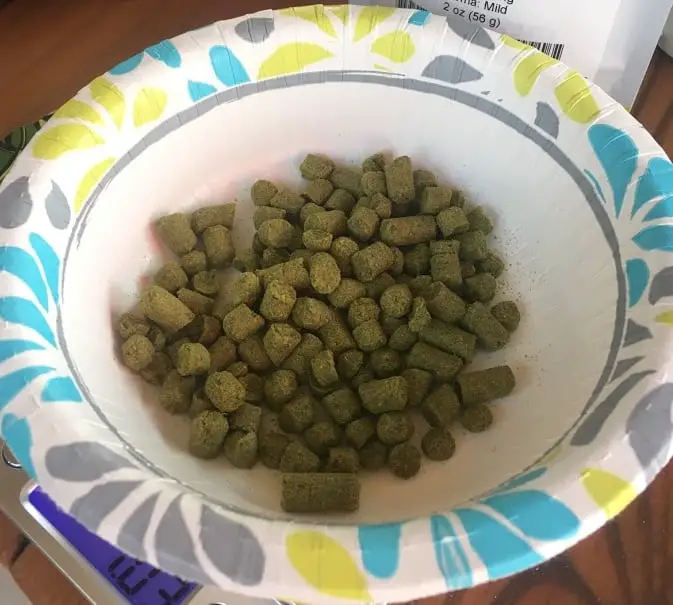
Methods for Removing Hops Post Boil
There are a few ways to make sure that you remove hops post boil. Either by using a hop bag or a hop spider. The key for hop removal with these methods is to keep the actual hop solids from sinking to the bottom of your brew.
Hop Bag or Muslin Bag
This is mostly used for smaller brew batches and kitchen stove batches. In these situations the heat from the underlying stove is not as great and it becomes easier to control a hop bag.
This is often used when dealing with extract or partial mash brews. Since these are typically lower in heat and total water. It’s easy to tie off the muslin bag and let it sit during the boil.
Hop Spider
A hop spider is used for larger boils. Its larger verticle profile allows it to get deeper into the brew without as much floating on top. Its best used for larger boils because you can set it and forget it.
The open top of a hop spider lets you drop hops in easily at different parts of the boil. This is much different than tying off a muslin bag. It makes it easier when dealing with different hop additions and hop types.
The easy removal of the hop spider at the end of the boil makes it a very worthwhile investment.
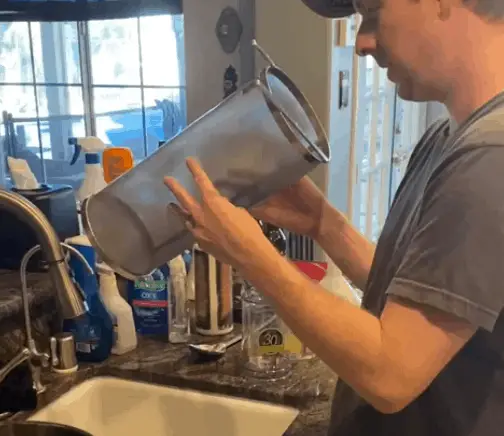
Post Boil hop Removal
There is another less reliable and more tedious method of hop removal post boil and that would be to strain the liquid wort before it goes into the fermentation vessel or container.
You could do this with a muslin bag mention above or you could use any incredibly thin mesh screen strainer. The key is to catch the hop trub as it moves out of your heat resistant silicone tubing. You can also leave some of the hop trub behind in the pot you cooked your wort in.
Dry Hopping For Aroma
Dry hopping refers to post fermentation hop additions. This is mainly for hop flavor and aroma. At this point we want to make sure we are using a hop bag in order to keep the hops separated from the wort so that we don’t add to the trub.
This may be another reason why we want to take hops out before fermentation so there is enough space for dry hopping. Plus if we are getting super scientific about it we need to make sure the excess oils from our whirlpool hop addition are not contributing to bittering flavors when we want fruit, floral and hop aroma.

Oxidation of Hop Trub
Oxidation is an issue for hops. While you won’t have an issue with oxidation of the hops that got carried over from the boil, if you plan on dry hopping it will potentially cause more problems. This is because you are exposing oxygen to your post fermented beer when adding additional hops.
This post fermentation hop addition can add oxygen to hop oils that would not have existed in your wort had you removed the hops sooner.
Learn More About Hops
There is a lot to learn about hops. It is just one of the four main ingredients in beer but it is an important one. There are so many hop varieties and new ones being patented everyday.
There is also so much research being done on hop oils and their effects in different environments. We understand so little about them but in time we will know more. Be sure to expand your knowledge by picking up a few books on hops. Some that I recommend are:
Be sure to check back here as we experiment and learn more about hops and homebrewing delicious beer without spending a fortune.
